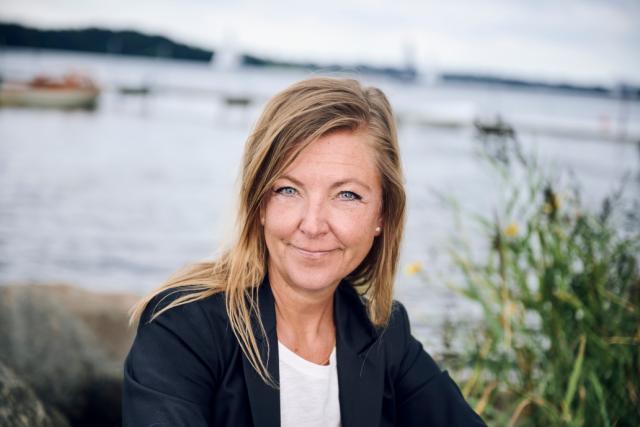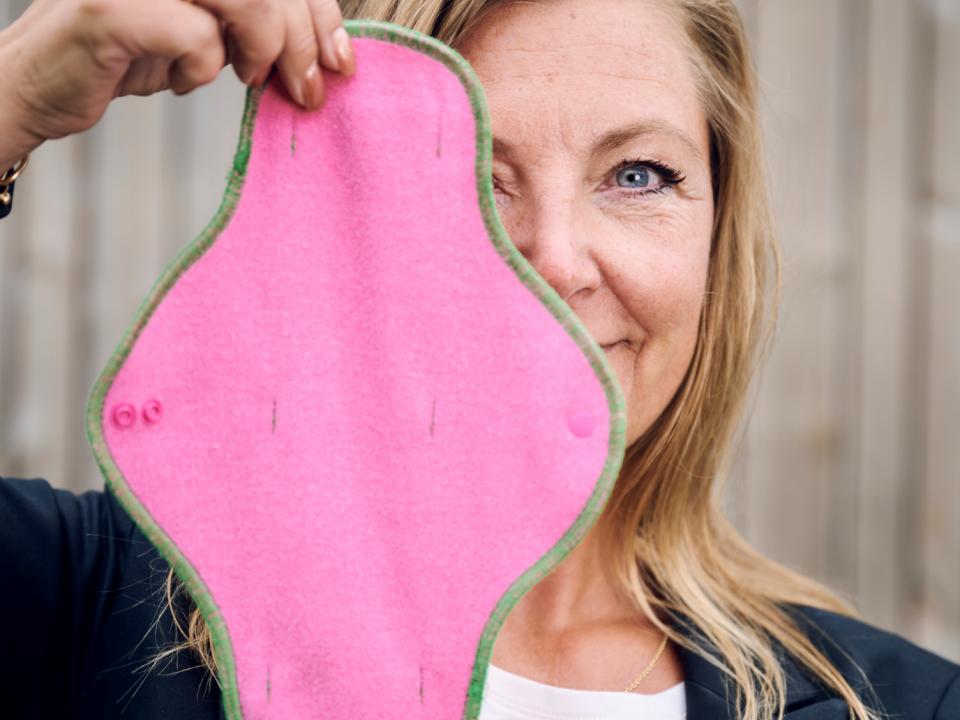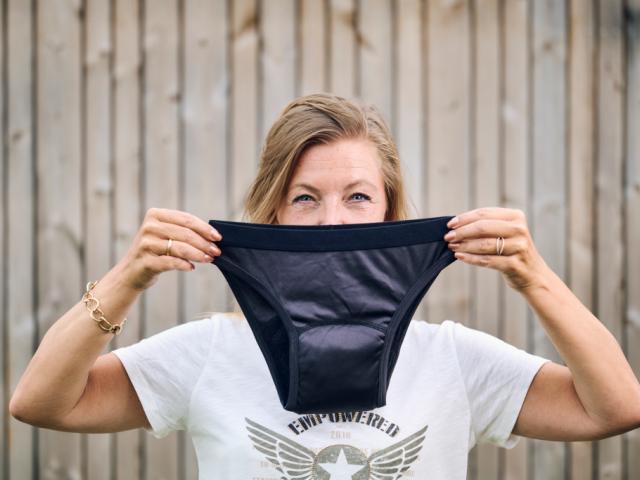"It damn well shouldn't be the reason they don't get an education."
Trine Angeline Sig is working to get 130 million girls into school – even when they have their period. The solution is called Safepad, and it's her company, Real Relief's, attempt to eradicate "period poverty." Since the invention seven years ago, the Kolding-based company Real Relief ApS has had 10 million high-tech sanitary pads produced and sold to major relief organizations.
You might think it's a cool invention. And it is. Safepad is a so-called "smart" sanitary pad, where the textile fibers have undergone an antimicrobial treatment, making the fabric positively charged. This means it practically attracts microbes that are negatively charged. The result is a pad that can be used under all conditions, that works even when washed in contaminated water, and that is reusable.
You might also think, "Impressive sales!" 10 million units are quite a few. But if you ask Trine Angeline Sig, CEO and co-owner of Real Relief, whether it's not a job well done – especially considering that the company consists of a total of 12 permanent employees – four in Denmark and eight at the office in India – the answer is no. And within that no lies part of the explanation of why she does what she does. "A sale of 10 million units is not satisfying as long as we haven't reached everyone. As long as there are millions of girls who can't go to school and women who can't work or move freely when they have their period. And at the same time, I know that we could produce 10 million Safepad per month, so it's not satisfying, and I intend to do something about it," she says.
"The Humiliating Injustice" Trine Angeline Sig is both extremely provoked and motivated by what is called "period poverty”. "I discovered it for the first time in Kenya many years ago. From the hotel, I could see girls and young women on the beach constantly running into the water. The waiter explained that they were menstruating and couldn't go to school because they couldn't afford menstrual products. Later, some of the girls told me that they had to prostitute themselves, simply sell their bodies, to afford pads. The humiliating injustice was a powerful eye-opener for me," she says. Later, Trine Angeline Sig heard about girls and women in Africa committing suicide out of shame because they had been expelled from school for bleeding through their cloth – and women in Nepal dying from snakebites in remote menstruation huts. "It can't be right that something as natural as menstruating – which half of the world's population experiences for about two months every single year for around 40 years – is so stigmatized. And that, coupled with the lack of access to sanitary pads, cuts off millions of girls and women from getting an education," she says.
"It should not be the lack of reusable hygiene products that determines whether girls and women go to school and eventually become decision-makers who can change the world." - Trine Angeline Sig, CEO and Co-founder, Real Relief
"I became so much wiser." Trine Angeline Sig's countermove became what she describes as Real Relief's mission: to invent and bring a solution to the market that can save or improve the lives of women in third-world countries. In this case, it's the "smart" pad Safepad, which in 2018 received the Danish Design Award in the category "Daily Life."
"It should not be the lack of reusable hygiene products that determines whether girls and women go to school and eventually become decision-makers who can change the world. Anything else is just silly, especially when we now know that investing in girls and women can be directly reflected in a country's GDP. And that no countries reach a high level of development until they do so," says Real Relief's CEO. She also mentions that back in 2016, she was confident that her company with Safepad had a really good business on hand in a super interesting market. "The need – and thus the demand – is enormous. Real Relief's capacity can be scaled without problems, so the supply was also in place, and thus the business case. Or so I thought. Since then, I became so much wiser because it has been – and is – very uphill to get funding for menstrual health," says Trine Angeline Sig.
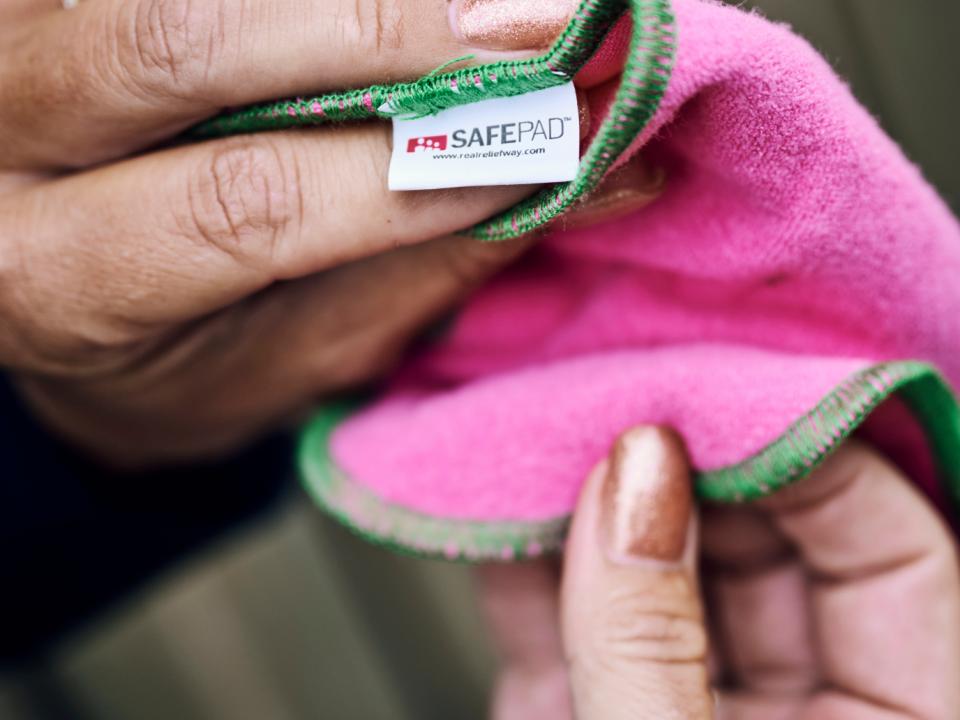
"So, it suddenly became an unpleasant meeting." Real Relief's customers are major relief organizations such as the International Red Cross, UNICEF, CARE, and various UN agencies. The starting point for the Kolding-based company in the early 2000s was to invent and produce insecticide treated mosquito nets that, with slow-release insecticide in the textile fibers, save lives for those sleeping under them – without harming people or the environment. And they practically sell themselves. "The mosquito nets are easy to talk about and easy to get funding for because most people know the numbers of how many children die from malaria every minute. Menstrual hygiene, on the other hand, is difficult. So difficult that in meetings in certain countries, I deliberately start by talking about our fine, harmless mosquito nets and only bring Safepad into the conversation at the end. And suddenly there is neither more time nor more money, and the mood is unpleasant," says Trine Angeline Sig. The turning point for Safepad came with a framework agreement with UNICEF in 2019, and today, among others, Plan International, the World Bank, and Danida are on board supporting the area of menstrual health.
"At the Risk of Life"
In India, the fabric for Safepad is produced and chemically treated. In Afghanistan, Bangladesh, Nepal, Uganda, Zambia, South Africa, Nigeria, and Malawi, the fabric is cut, sewn, and assembled into Safepad, which can be distributed as part of emergency aid. Funds come from, among others, World Bank and Danida – as support for creating jobs in the regions. In Laos, the World Bank also supports the production of Safepad in a so-called Livelihood Project.
"We just said yes, then an extra layer is added in the form of 'decent jobs' or 'livelihood,' but it's also a bit crazy that it has to be so insanely difficult to get money directly for Safepad," says Real Relief's CEO. Trine Angeline Sig is pleased that menstrual activism is bubbling and flourishing – not only in Europe but also in Africa. But she regrets almost daily being confronted with the fact that girls and women do not have the same value as men. And that the menstrual hygiene area is therefore not even mentioned in passing under the Sustainable Development Goals, despite its enormous impact, particularly on education when millions of girls and women cannot go to school or work every month. When she remains determined to combat "period poverty" by getting major relief organizations to buy Safepad in the quantities needed, it is partly due to an experience at the satellite production factory in Afghanistan. "After the U.S. withdrawal, it was the Taliban I had to negotiate with to keep the production going. I was very doubtful – could I do it, would I do it? But the 125 women in the factory insisted. They love their jobs, and they go to work – and on the streets – at the risk of life. So, I can also handle that the sale of Safepad is a bit uphill for me both in Denmark and around the world," says Trine Angeline Sig.
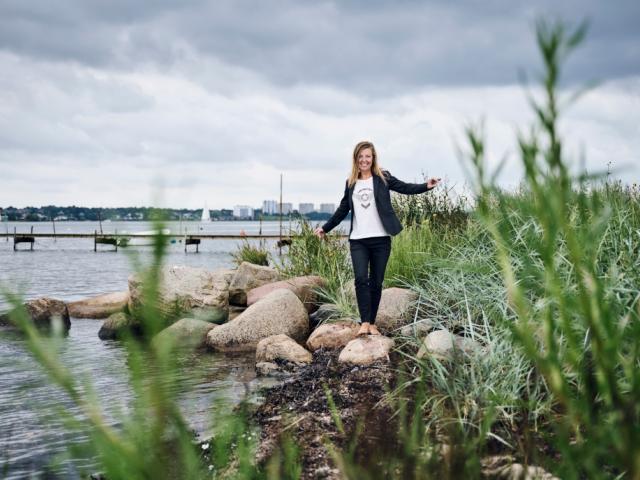
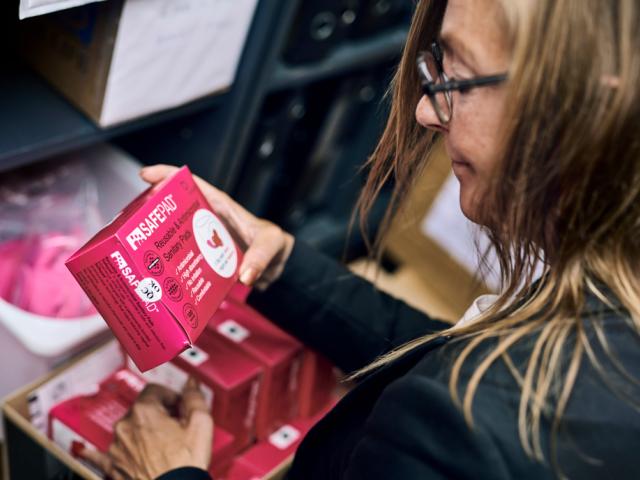
Real Relief ApS
Founded in Kolding in 2013 and owned by Trine Angeline Sig (CEO) and Torben Holm Larsen (Technical Director).
Develops and sells textile products such as mosquito nets and menstrual pads (Safepad).
Customers include UN agencies and organizations like UNICEF, Red Cross, and Plan International.
Employs 12 people, including eight in India.
Safepad is cut, sewn, and assembled at eight locations worldwide, including Afghanistan, Bangladesh, and Nigeria, in collaboration with entities like Danida.
Achieved a turnover of DKK 54 million in 2022.
Received several awards for products, including the Danish Design Award "Daily Life" in 2018 and the Power Together Award in 2019 for putting menstrual hygiene on the global agenda.

